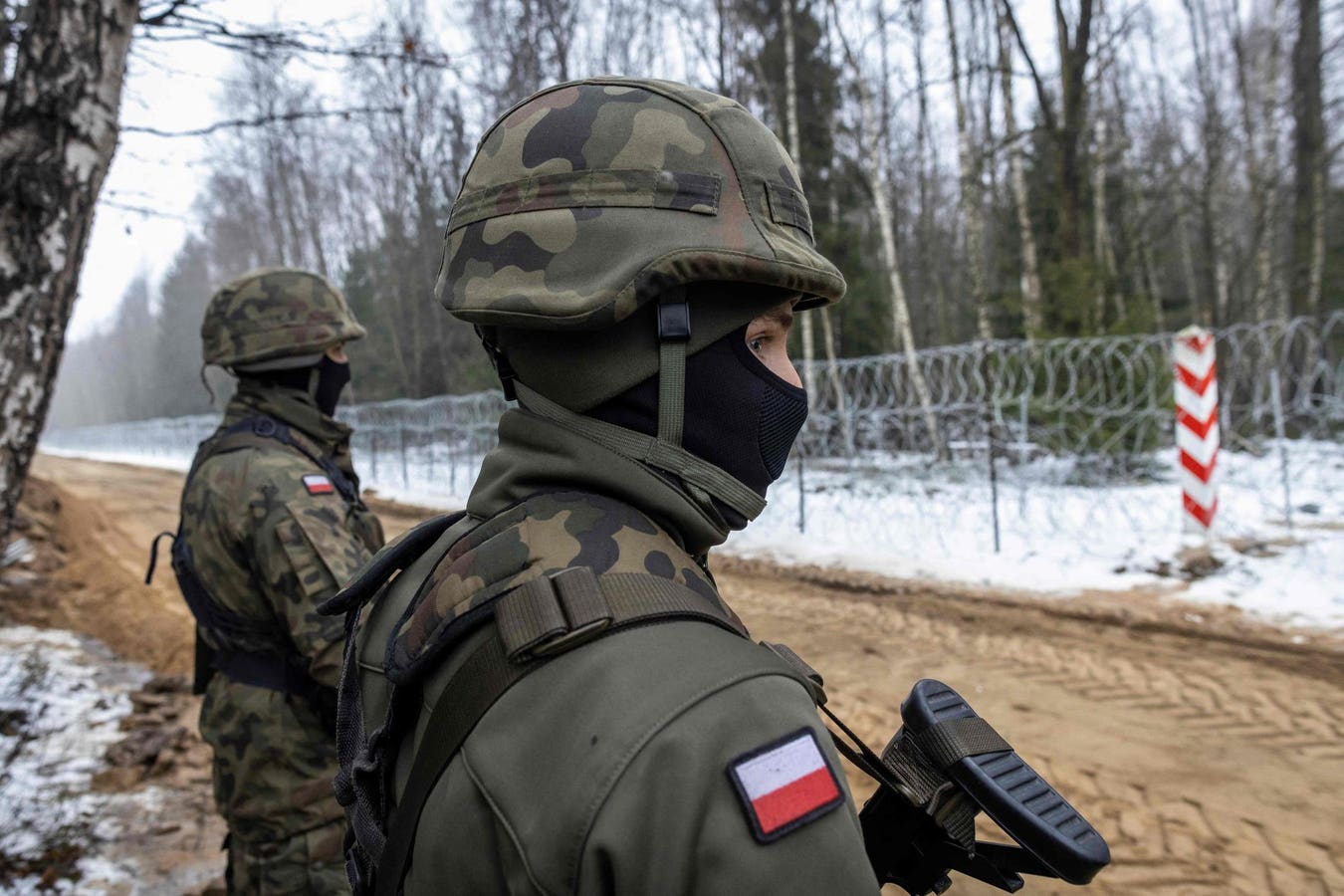Polish soldiers on the Polish-Belarus border on January 27, 2022. (Photo by Wojtek RADWANSKI / AFP) … [+] (Photo by WOJTEK RADWANSKI/AFP via Getty Images)
AFP via Getty Images
The European Court of Human Rights (ECHR) is to consider three cases involving irregular migrants allegedly being ‘pushed back’ across the border from EU states to non-member state Belarus. The case is significant as it will be the first time the court turns its attention to EU border authorities’ role in a long-running dispute over practices on both sides of the border.
Three separate cases are being brought against Latvia, Lithuania and Poland. They allege that authorities of each country acted to force people back into Belarus as they tried to reach EU soil. Such practices – known as ‘pushbacks’ – contravene EU human rights legislation, though they have been widely documented happening around Europe for a number of years.
These particular cases focus on one of the EU’s most contentious, and mysterious, borders. For several years, European authorities have accused Belarus – a close ally of Russia – of shepherding people to the EU border, at times facilitating or even forcing people to cross over, in theory in order for them to apply for asylum or otherwise seek shelter. In Brussels-speak it has been referred to as ‘weaponizing’ or ‘instrumentalizing’ migration. It has also been described as a form of ‘hybrid’ warfare, wherein Belarus is accused of trying to destabilize the EU’s infrastructure and political cohesion by forcing or exacerbating a perceived ‘crisis’ of irregular migration.
The motivation for Belarus to act in this way is unclear, though it is suggested it may be at the behest of Russia, or in retaliation for EU sanctions against Belarus, or indeed both. There is considerable evidence that Belarus has indeed been at the very least facilitating peoples’ journeys to the EU border, with many firsthand accounts of the practices and a marked rise in the number of people crossing into Lithuania, Poland and Latvia since 2021.
The cases to be heard in the ECHR do not, however, address this alleged ‘intrumentalization’ of migration by Belarus, but rather EU member states’ reaction to it and their treatment of the people caught up in the middle of it. Human rights groups and other observers have accused countries such as Poland, Lithuania and Latvia of using the ‘instrumentalization’ argument as a pretext to neglect their own human rights obligations. Some groups, including Human Rights Watch, have gone further and alleged EU border authorities have used violence to push people back across the border, denying them their right to claim asylum.
The relevant EU states have, for their part, declared the situation a state of emergency – leaning on the ‘instrumentalization’ framing – asserting the actions of their border authorities are legitimate under emergency powers.
All these claims are now to be assessed by the ECHR. Depending on what the court finds, the three cases could set significant precedent for future pushback practices, essentially deciding what, if any, conditions might allow EU member states to forcibly expel people seeking shelter. Such precedent could also conceivably have broader ramifications for other member states around the bloc, emboldening them in their own ‘pushback’ practices.
